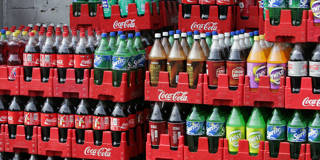Threatened by government scrutiny over their exploitative marketing practices, manufacturers of sugary, ultra-processed foods and beverages repeatedly tout self-regulation as a more effective alternative. But both research and experience show that voluntary corporate pledges do not improve public health.
JOHANNESBURG – Food and beverage giant Nestlé recently updated its “responsible marketing to children practices.” As part of its new policy, which takes effect in July, the company says it will limit the marketing of unhealthy and ultra-processed foods to children under 16 and praises itself for being “one of the first food and beverage companies to voluntarily adopt such strict standards.”

JOHANNESBURG – Food and beverage giant Nestlé recently updated its “responsible marketing to children practices.” As part of its new policy, which takes effect in July, the company says it will limit the marketing of unhealthy and ultra-processed foods to children under 16 and praises itself for being “one of the first food and beverage companies to voluntarily adopt such strict standards.”